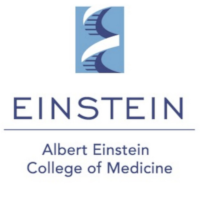
28 Jul PostDoc Fellow – Hébert lab
The Hébert lab – Moving toward restoration of brain function with cell transplants
The neocortex is the part of our brain that performs our highest cognitive functions. In recent years, the mechanisms underlying how stem cells in the embryo generate the neocortex have become better understood. Armed with this knowledge, the Hébert Lab is developing stem cell transplantation approaches to regenerate adult neocortical tissue after age-related degeneration.
The lab’s projects fall into two groups. In the first, we use the mouse neocortex as a platform for testing the ability of multi-cell type grafts (increasingly resembling normal neocortex) to integrate with host tissue. In the second, we are testing the ability of genetically engineered microglia that disperse throughout the adult neocortex to bolster neocortical function.
These are highly collaborative projects requiring multidisciplinary methods, which include molecular genetics, human embryonic stem cell biology, transcriptomics, surgery, electrophysiology, live brain imaging, and behavioral tests, among others. Thus the Hébert Lab offers its members excellent opportunities for acquiring diverse and cutting-edge skill sets in an up-and-coming research area.
Want to know how we will defeat aging?
Check out Replacing Aging, which describes how regenerative medicine will beat aging: available here on Amazon
Positions available:
The Hébert lab is seeking to add a qualified postdoctoral fellow to its team. The lab is developing innovative ways of replacing brain cells, including the neurons, glia, and vascular cells of the neocortex. For example, engineered mouse and human precursor cells are being transplanted into the mouse neocortex to assess their ability to disperse within the parenchyma prior to differentiating and to assess how well neuronal and vascular precursors can functionally integrate into the host neural circuits and vasculature, respectively. Within a highly collaborative and interactive environment, the postdoctoral fellow is expected to lead their own project.
Candidates with independent funding are preferred. Please contact jhebert160@gmail.com if interested.


Sorry, the comment form is closed at this time.